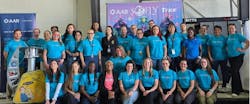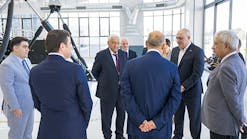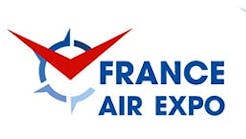Aircraft Maintenance Specialist - Engineer Yourself into the World‘s TOP100 Most Wanted Professions
Currently the global aviation industry employs over 56 million of people worldwide. Aviation professionals contribute to the global economy 3.5 times more than any other industry representatives. Considering their influence and extreme importance to the modern society, aviation-related professions remain amongst the most desired and promising both in Europe and the entire world.
Aircraft manufacturers predict that in less than 20 years’ time approx. 27-to-35 thousand of new aircraft will be delivered around the world, including such regional jets as Embraer and Bombardier as well as large aircraft like Airbus A380s and Boeing 787s. But the growing demand for air transportation worldwide is not the only factor forcing airlines to renew and expand their fleets, as the current generation of aircraft is quickly approaching its retirement point.
However, not only airplanes and helicopters need a well-deserved rest as they approach a certain age. Aviation specialists do so, too. Unfortunately, this, along with the on-going fleet renewals in Europe, drives the aviation industry to the point when the lack of qualified aviation specialists will eventually interfere with the expansion plans. The shortage of specialists is already being monitored in many countries across the continent.
"In 1990-early 2000 aviation was certainly not among the most popular professions, particularly in Central and Eastern Europe. Everyone wanted to become businessmen, managers, lawyers, etc. As a result, today many job markets are subject to an excess of certain professionals, while some, like aviation, are suffering from the consequences of the 15-20 years gap in preparing a new generation of specialists," comments Kestutis Volungevicius, Head of FL Technics Training.
Moreover, unlike the segments of healthcare or law, aviation doesn‘t bound a specialist to a particular country. Licenses gained by aviation specialists in the European Union are valid in the majority of other countries worldwide. This allows any young European who becomes a licensed aircraft mechanic to work at practically any location across the globe.
However, there is no need to move to China or India in order to harvest the opportunities of aviation professions. An average monthly salary in Western Europe is approx. 1500-1900 euros, while in many other European countries the figures are much lower. In the meantime, licensed aircraft specialists enjoy an average pay of 4000 euros per month.
According to Boeing, each year over 5 thousand new aircraft technicians and engineers must be prepared in order to meet the growing demand for qualified aviation specialists in Europe. However, at this point the pace of preparing new specialists is only half of that.
"Doubtlessly, the profession of a pilot also has a lot of potential. But with every new aircraft manufacturers are trying to decrease the workload inside the cockpit. As a result, aircraft are becoming more and more sophisticated and complex so maintenance organizations require increasingly qualified workforce competent to serve the latest technologies and materials. This is one of the reasons why the profession of a pilot has passed the baton of the most promising aviation specializations to that of aircraft engineers. We are confident that everyone who has decided or is yet to decide to join aviation will become the next generation of professionals leading the industry to further heights," commented the Head of FL Technics Training.
For more information please visit: http://dream-job.fltechnicstraining.com/
About FL Technics Training:
FL Technics Training is a provider of technical training for the aviation industry. The company offers comprehensive training services including basic training and examination, aircraft type training and specialized training for aircraft maintenance technicians as well as administrative and management personnel. FL Technics Training is part of an integrated aircraft maintenance and repair organization (MRO) FL Technics.
Based in Vilnius, Lithuania, FL Technics Training is certified as a European Aviation Safety Agency (EASA) Part-147 training organization providing courses for basic, aircraft type training and customized training programs designed according to individual client requirements. The company serves a wide range of customers from Europe and the CIS (Poland, Romania, Ukraine, Moldova, Russian Federation etc.), Asia-Pacific (including South Korea, Pakistan, Kazakhstan, Tajikistan, and etc.), Africa, Cuba and other regions.
Drawn up in accordance with the requirements of the EASA, FL Technics Training programmes cover four areas: basic training, aircraft type training, specialized aviation training and consulting services. FL Technics Training offers training for diverse aircraft types: Airbus A318/A319/A320/A321, Airbus A380/340/330, ATR 42 - 200/300, ATR 72 - 100/200, Boeing 737 - 300/400/500, Boeing 737 - 600/700/800/900, Boeing 757 - 200, Boeing 767 - 200/300, Boeing 747/777/767, Saab – 340, Saab – 2000, Bombardier CL-600-2B19.
FL Technics Training offers specialized training programs of general interest for technical as well as administrative personnel from Engineering and Planning, Quality system, EASA Regulation Part-145 and Part-M to Fuel Tank Safety courses. Training programs can be adapted to meet the specific needs and requirements of clients.
More than 3000 students for over 45.000 hours per year are trained at the company's theoretical courses in Moscow, Tyumen, Alma Ata, Vilnius and London. Training on the job is executed in Vilnius, Kiev and London.
For further information please visit website http://www.fltechnicstraining.com/





